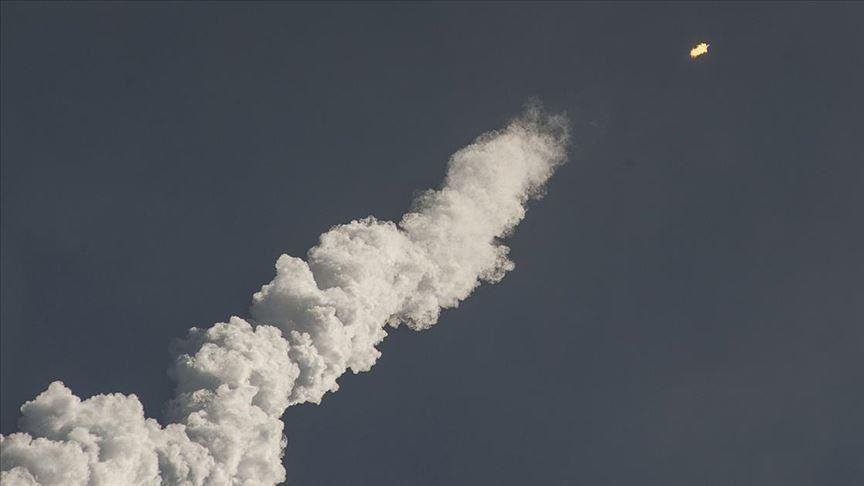29 Civilians Dead in Houthi Mosque Attack
Houthi projectile (AA)
Iran-backed Houthi rebels launched a multi-missile attack on a religious school and mosque in the Marib Province of Yemen late on October 31, according to the province’s information minister, Muammar al-Iryani, via Twitter. The Houthis have yet to claim responsibility for the use of two ballistic missiles in the offensive which killed and injured 29 Yemenis, including women and children. This incident occurred as a part of an ongoing campaign by the Houthis to control the energy-rich provinces of Marib and Shabwa.
The Yemeni civil war began in 2011, following the onset of the Arab Spring. The authoritarian leader of Yemen, Ali Abdullah Saleh, transferred power to Vice President Abdrabbuh Mansour Hadi in response to calls for stability as democracy spread across the Middle East. However, the movement failed as Hadi struggled to spur comprehensive reform on key issues including government corruption and food insecurity. Thus, with the support of many disenchanted Yemenis, the Shiite Houthi Rebel movement declared war on the United Nations-recognized Hadi government in 2014. Saleh attempted to take back Yemen in 2015 and Hadi fled, though Saleh was later killed in a 2017 Houthi attack on the capital city of Sanaa.
Since then, the international community has taken sides on the ongoing civil war. Iran has continued to fund the Shiite Houthis and the United States, alongside Saudi Arabia, had at one point equipped pro-government forces with weaponry and military assistance. However, President Joe Biden announced plans to officially end all aid to the Saudi-led coalition in the Yemeni Civil War in February 2021. Later that month, Secretary of State Anthony Blinken revealed his department’s intentions to lift terrorist designations from the Houthi Rebels. These significant foreign policy decisions, accompanied by the designation of a special U.S. envoy to the Houthis, support the Biden administration’s intentions to find a peaceful resolution to the Yemeni civil war.
Yet the humanitarian crisis which has arisen from the onset of the conflict has yet to be resolved. According to USAID, 16.2 million people of Yemen’s population of 30 million need food aid. Nearly half of all Yemeni children under the age of five suffer from stunted growth because of malnutrition, with some 400,000 children now in danger of dying from severe acute malnutrition—an increase of 22 percent over 2020. Yet, despite the spread of COVID-19, basic medicine, food, and water has been denied by the Houthis. Human Rights Watch reported in 2020 that the rebels blocked 262 shipping containers of personal protective equipment (PPE) and medicine meant for the country’s sick and impoverished citizens. The aid would only be received if the non-governmental organizations providing them would agree to release the Houthis from certain restrictions.
Still, little has been done to hold either the Houthis or the Saudi-coalition accountable. The United Nations Human Rights Council voted to discontinue the group’s investigation of war crimes in the Yemeni civil war in October of 2020. The Yemen Data Project found in 2019 that, over a four year period, the Houthis were responsible for multiple air raids that caused nearly 18,000 casualties. On the other side of the war, the United Nations Group of Experts on Yemen identified Saudi forces as responsible for crimes of murder, torture, sexual violence, and indiscriminate airstrikes.
As the Houthis and Saudi-coalition fight tooth and nail to reach a prolonged conclusion, civilians are the ones caught in the crossfire. Incidents like the October 31 mosque attack have become commonplace in Yemeni life, where victims are often killed by Iranian, Saudi, or American-made machines of war.

